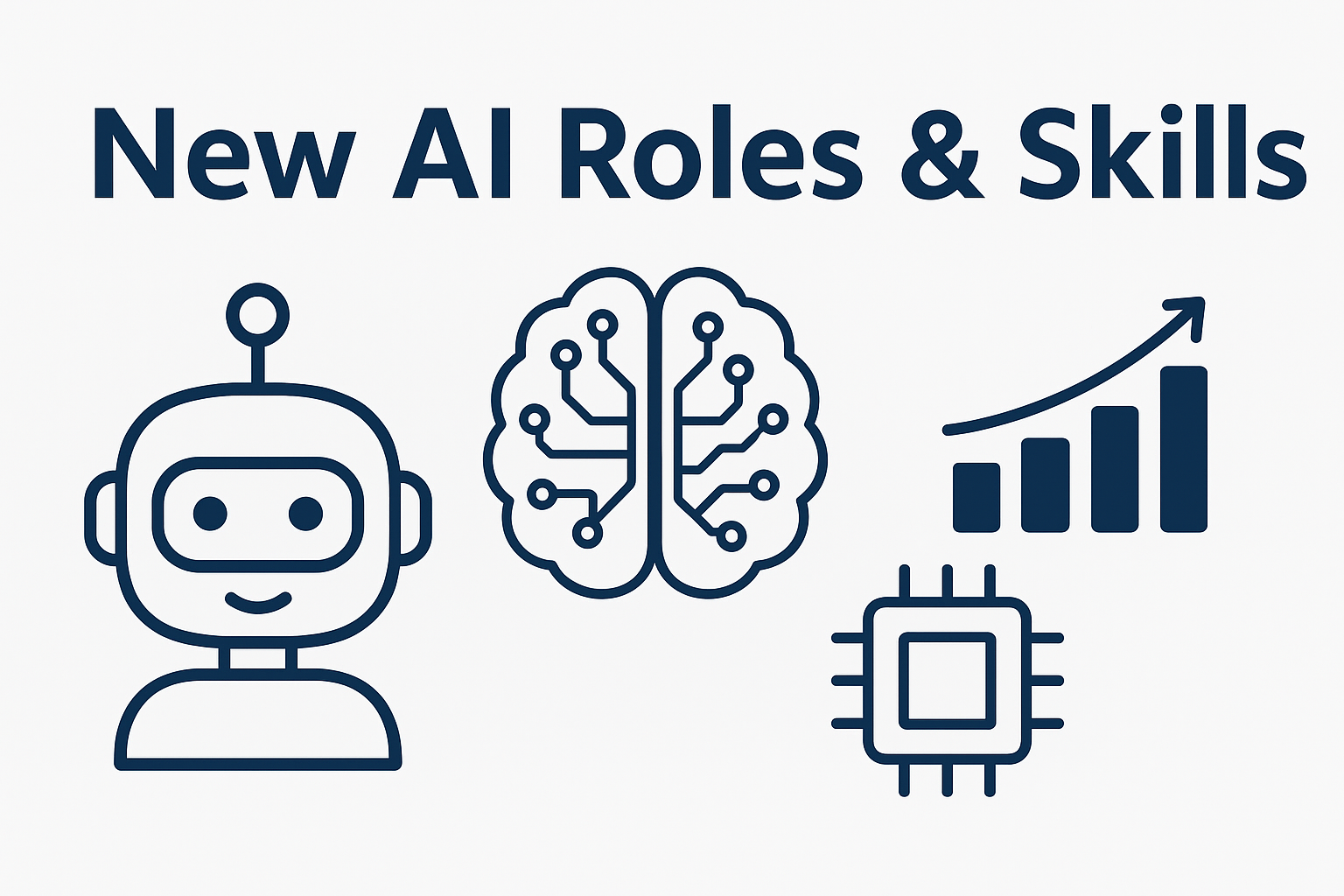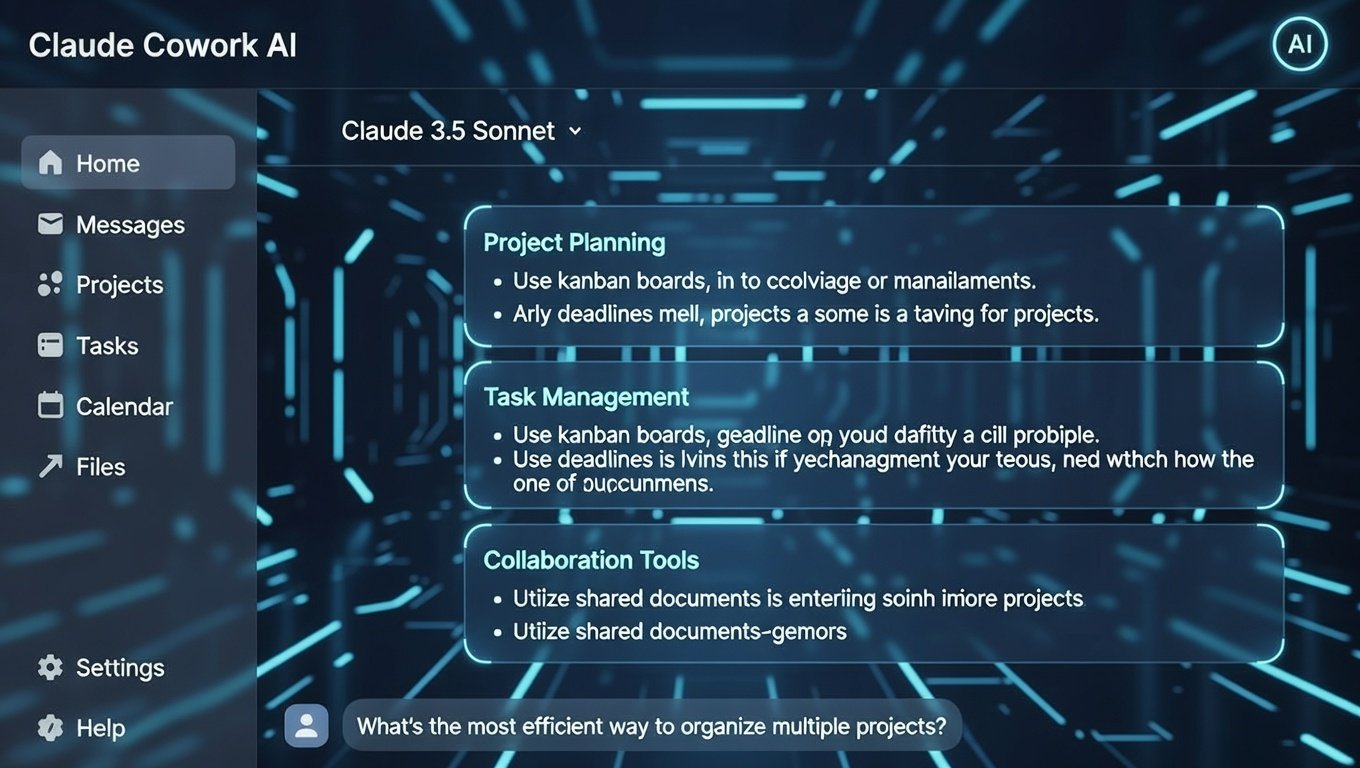Artificial intelligence is no longer a niche technology; it’s rapidly becoming the foundation of modern business operations.
As organisations adopt AI at scale, entirely new job roles are emerging along with a unique set of skills that professionals need to thrive in this evolving landscape.
This article explores the new AI roles, their core responsibilities, and the critical skills required to excel in them.
Emerging AI Roles
The AI ecosystem is expanding, and traditional roles like data scientist and AI developer are now joined by specialised positions designed to meet new demands. Here are some of the most important roles shaping the future:
- Model Manager Oversees the lifecycle of AI models, ensuring they remain accurate, ethical, and useful over time.
- Prompt Engineer Designs and optimises prompts for large language models (LLMs) to ensure effective and reliable outputs.
- Knowledge Engineer – Structures data and knowledge bases for better AI reasoning and retrieval.
- Analytics Engineer / Data Engineer Builds robust data pipelines and architectures for AI systems.
- AI Architect Designs the overall AI ecosystem within an organisation, integrating models, tools, and workflows.
- AI Risk & Governance Specialist Ensures compliance, fairness, transparency, and accountability in AI solutions.
- AI Ethicist – Focuses on responsible AI adoption, addressing issues such as bias and ethical decision-making.
- AI Product Manager – Aligns AI initiatives with business goals, ensuring solutions deliver measurable impact.
- UX Designer for AI – Creates intuitive user experiences for AI-powered applications.
- Decision Engineer – Develops AI-driven decision-making frameworks for enterprises.
Core Skills for AI Professionals
The chart highlights which skills are critical, important, nice-to-have, or not required depending on the role. Here’s a breakdown of the most in-demand skills:
1. Python Programming
Still the backbone of AI development, Python is a critical skill across roles like data scientists, developers, and engineers.
2. Machine Learning Algorithms
Essential for roles like AI developers, ML engineers, and model managers. A deep understanding of supervised, unsupervised, and reinforcement learning is key.
3. Data Processing & Analytics
Roles like analytics engineers and data scientists require strong data manipulation skills.
4. Deep Learning Frameworks
PyTorch, TensorFlow, and other frameworks are critical for model training and deployment in technical roles.
5. Model Deployment & MLOps
AI doesn’t stop at development — deploying and monitoring models in real-world environments is a must-have skill for engineers and managers.
6. Statistical Analysis & Probability
Fundamental for decision engineers, data scientists, and AI risk specialists to ensure reliable outputs.
7. Large Language Models (LLMs)
A fast-growing skill area, particularly critical for prompt engineers, AI developers, and knowledge engineers.
8. Ethics & Governance
AI ethicists, risk specialists, and governance professionals must be skilled in ethical frameworks, bias detection, and compliance.
9. Domain-Specific Knowledge
Industry knowledge (finance, healthcare, retail, etc.) enhances AI adoption by aligning solutions with real-world challenges.
Which Skills Are Most Critical?
Based on the chart:
- Critical (3): Python, ML algorithms, data processing, deep learning frameworks, MLOps, statistical analysis, and LLMs.
- Important (2): AI ethics, explainability, business understanding, and risk assessment.
- Nice to Have (1): Vector databases, GANs (generative adversarial networks), and some domain-specific expertise.
This means professionals who want to stay competitive in AI should focus on a blend of technical depth (programming + ML frameworks) and strategic insight (ethics + governance + product thinking).
Why These Roles Matter
Organizations are shifting from experimenting with AI to integrating it into core business functions. With that shift:
- Specialized roles like AI ethicists ensure trust and compliance.
- Decision engineers enable businesses to act on AI insights with confidence.
- Prompt engineers bridge the gap between human language and machine understanding.
These roles don’t just represent jobs of the future — they are already in demand today.
AI is creating a new workforce ecosystem where technical expertise, ethical considerations, and strategic alignment are equally important.
Whether you’re a seasoned data scientist or a newcomer exploring AI, the future belongs to those who can adapt, learn new skills, and align with emerging roles.
The takeaway? If you’re looking to future-proof your career, start by developing Python, ML, and LLM skills, while staying aware of the growing importance of AI ethics and governance.




